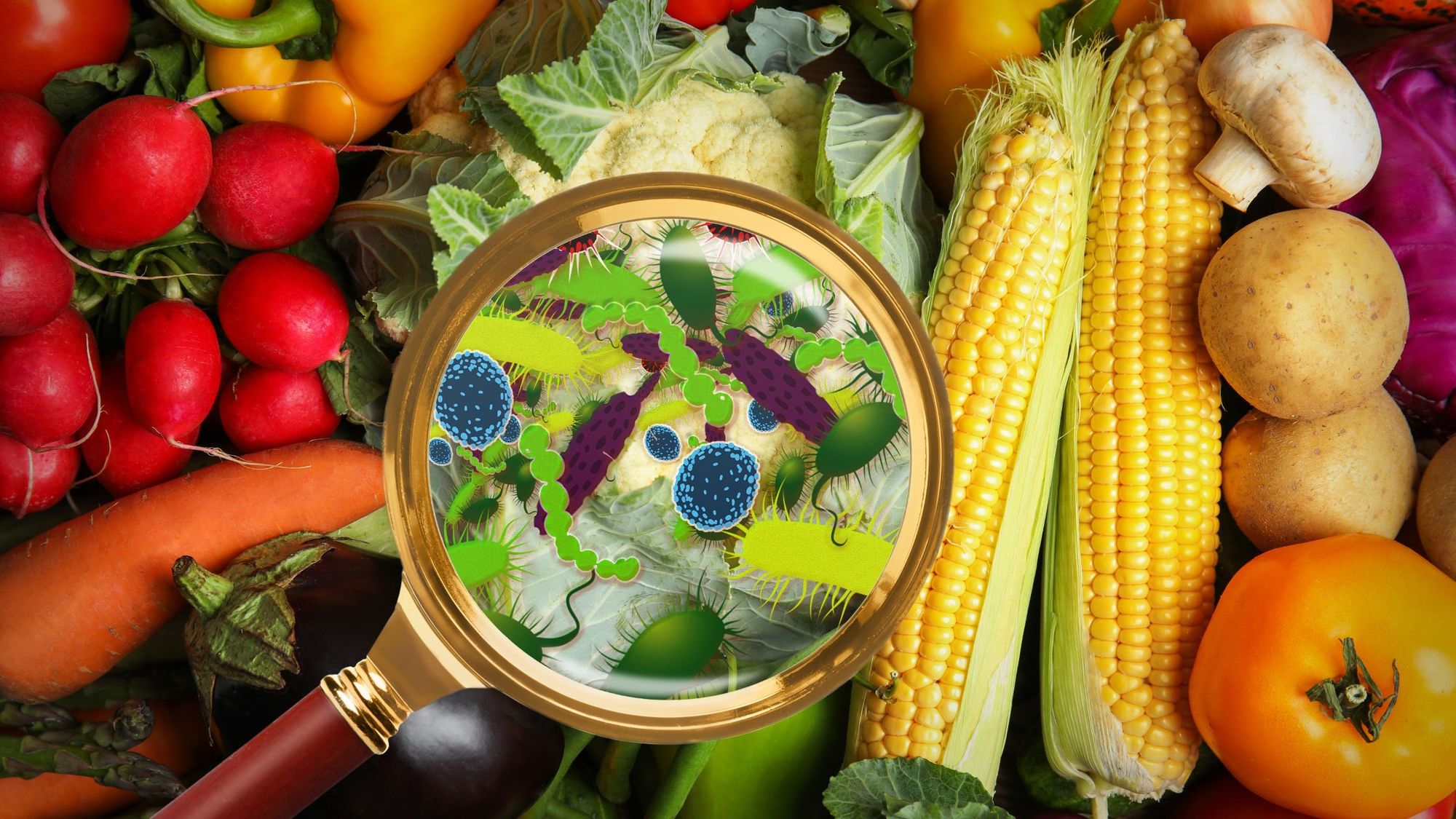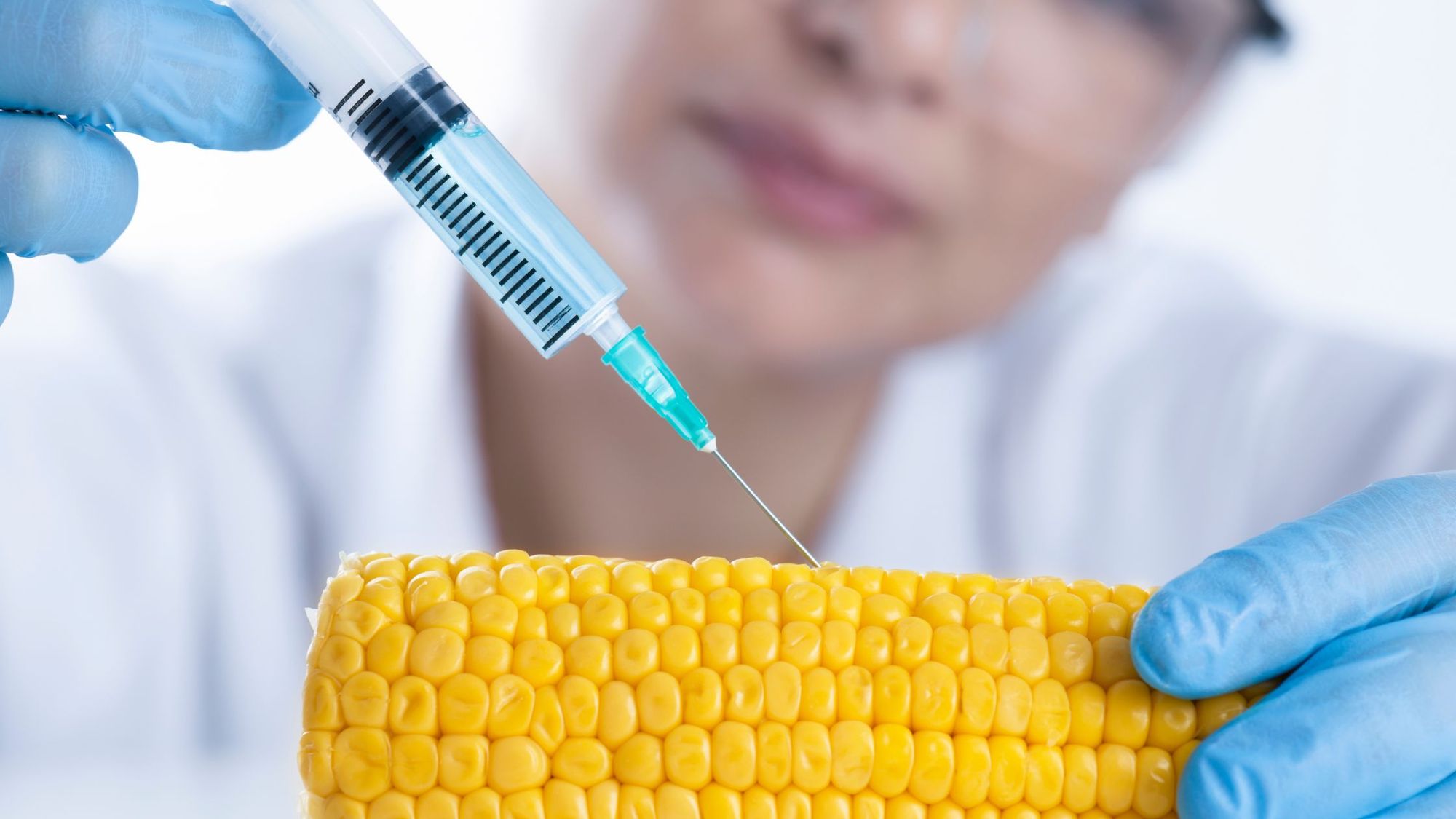
GMO foods vs non GMO foods – what’s all the fuss about? GMO stands for ‘Genetically Modified Organism’, and while we mostly associate it with certain crops, it spreads much further than that. The GMO process is all about altering the genetic makeup of plants (and even animals like fish) to make them resistant to diseases, mature faster, or yield a larger harvest.
There is a great deal of controversy over GMOs, and it remains a hot topic of debate across the world. While there are no known risks to the consumption of GMOs, and they have the potential to solve numerous nutritional and supply problems, the bigger debate is the alteration of DNA. It’s about what the future issues could be and what the wrong alteration could do.
What are GMO Foods?
Any living organism that has been genetically modified is classed as a GMO, and GMO food is the most prevalent subject of this procedure. When crops are genetically modified, it is usually for the purpose of improving their nutritional value and increasing the rate of growth so there’s more harvest, as well as making the foods resistant to pests and easier to farm. Overall, this tends to increase sustainability.
It tends to be faster and more efficient than selective breeding, providing positive results that have had a positive impact on farming. In fact, GMOs are so widespread that as much as 90% of the seeds used to plant corn, maize, soy, and cotton in the US are GMO seeds. Interestingly, it is almost impossible to tell what is non GMO food in US supermarkets compared to Europe.
The main concerns people have about GMOs are the impact they have on the environment and the issues that come with ‘playing God’. There are also concerns about the impact on health, namely with regard to allergies and illnesses. While GMO foods are declared safe by the FDA, these fears are more related to the future impact of genetic modification, and possible advancements in genetic modification.

What are Some Non GMO Foods?
Depending on where you live and your laws, It can actually be really difficult to avoid GMOs in your diet. While Europe is very clear that anything with 0.9% or higher GMO content has to be labelled as such, the US has no such laws. This means it is not easy to tell between GMO foods and non GMO foods in the US.
However, there are some options that are generally safe and not traditionally part of the GMO genetically modified crop list. These non-GMO foods include:
- Olive oil
- Tomatoes
- Seeds and nuts
- Potatoes
- Lamb from New Zealand
- Wheat
- Imported fruit and cheese (if in the US)
- General herbs
- Salads (sans dressing)
- Wild seafood (farmed fish is usually GMO)
It’s a short list, and it’s possible to find other non GMO foods out there. The best way to source non GMO foods is to ensure that you only buy organic foods. This is because there are strict rules about what is classed as organic fruit, veg, and livestock.
So, if non gmo foods are what you’re after, buy more organic produce, as well as some nuts, seeds, and wild salmon. At least you’re eating a much healthier diet this way, since these foods like wild fish and organic fruits and vegetables are all very healthy.
Are There Any Benefits of GMOs?
There are quite a few benefits to the use of GMOs, primarily because many of them have been modified in such a way that they are protected from pests, insects, and even some diseases that can be devastating to crops. But how does that work? Well, the gene that is added to the genetic makeup of the plant produces a protein that is toxic to the pests in question.
This natural resistance is not harmful to humans, and it means that the plants don’t need to have pesticides used on them nearly as often as conventionally farmed crops. These altered genes are also able to help them survive harsh and difficult conditions like frost and drought. This makes them an excellent choice for areas that naturally struggle with these conditions.
Genetically modifying crops has also been used to increase the nutritional value, a move which has been shown to help areas that struggle with vitamin deficiencies due to the lack of a naturally varied diet. In some cases, it can even be something fairly superficial, like preventing an apple from browning through the altering of its DNA.

What are the Downsides of GMOs?
It is important to reiterate that current GMOs are mostly regarded as safe, but there are concerns about the long-term impact that they could have on health, as well as how they might impact the environment.
One of the main concerns is the risk of allergic reactions that could come with the consumption of GMO foods. With non GMO foods, there is no risk of cross-contamination because their genetic makeup is entirely natural. However, splicing DNA means that GMO foods contain foreign genetics from foods that could cause allergies.
It should be noted that there have been no allergies caused by GMOs reported as of 2023. This remains a potential fear for the future as genetic splicing becomes more advanced and adventurous in the progression of GMOs.
The primary concern is that of the potential environmental impact. A great deal more research is needed on the topic as it’s still quite fresh, but the main question is how the resistance to pesticides found in GMO foods will escalate. Since so many GMO plants are resistant to herbicides, it means that farmers can use as much of it as they like without worry.
However, weeds have become more resistant to herbicides naturally over time, and this has led to more herbicides being used on them. As a result, more of it ends up on the crops, which then ends up on the market for human consumption (although the levels are harmless).
In addition, it means more chemical herbicides are being pumped into the environment.
Who Should Avoid GMOs?
Current limited research can’t really state that anyone needs to necessarily avoid GMOs. There are no links to GMOs and adverse health effects, but if you’re worried about the potential long-term effects, then there is nothing wrong with sticking to non GMO foods. There’s certainly no harm choosing non GMO foods. A lot more research is needed before we can determine if there are any long-term effects on human health, but GMOs are currently regarded as safe by the FDA.
Are GMOs Healthy?
GMOs can be healthy, especially since they can be modified to include a denser nutrient base and be richer in what they provide. In this sense, they are a healthy option. Since there has been no association between GMOs and health risks, they remain a safe and healthy option. In fact, it could be healthier than conventional farming due to the nutrient levels.
To Conclude
Non GMO foods aren’t much different from GMO foods. The main thing is that they have been genetically modified to be richer in nutrients and easier to grow – especially in tough climates. While more studies are needed to assess their impact on human health and the environment, they are currently classed as safe and beneficial for communities worldwide.
Before you go, why not pick up a DNA test from CircleDNA? The results are a great way to see what kind of diet plan benefits you the most, based on your genetic makeup, so that you can choose the best options for yourself. It will show you which nutrients you need more of and can help guide you towards the right diet and exercise plan that suits your genetic body composition.
References:
- MJ O. Why we need GMO crops in agriculture. Missouri medicine. 2014;111(6). Accessed January 18, 2023. https://pubmed.ncbi.nlm.nih.gov/25665234/
- Kamle M, Kumar P, Patra JK, Bajpai VK. Current perspectives on genetically modified crops and detection methods. 3 Biotech. 2017;7(3). doi:10.1007/s13205-017-0809-3
- Bawa AS, Anilakumar KR. Genetically modified foods: safety, risks and public concerns—a review. Journal of Food Science and Technology. 2012;50(6):1035-1046. doi:10.1007/s13197-012-0899-1
- Khan S, Anwar S, Yu S, Sun M, Yang Z, Gao Z. Development of Drought-Tolerant Transgenic Wheat: Achievements and Limitations. International Journal of Molecular Sciences. 2019;20(13):3350. doi:10.3390/ijms20133350
- Garg M, Sharma N, Sharma S, et al. Biofortified Crops Generated by Breeding, Agronomy, and Transgenic Approaches Are Improving Lives of Millions of People around the World. Frontiers in Nutrition. 2018;5. doi:10.3389/fnut.2018.00012
- Nordlee JA, Taylor SL, Townsend JA, Thomas LA, Bush RK. Identification of a Brazil-Nut Allergen in Transgenic Soybeans. New England Journal of Medicine. 1996;334(11):688-692. doi:10.1056/nejm199603143341103
- Schütte G, Eckerstorfer M, Rastelli V, et al. Herbicide resistance and biodiversity: agronomic and environmental aspects of genetically modified herbicide-resistant plants. Environmental Sciences Europe. 2017;29(1). doi:10.1186/s12302-016-0100-y





